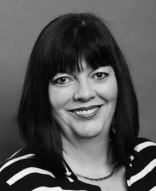Home › blog › 2025 › July › 10th › using ai to clean public spaces
Using AI to clean public spaces
10th of July 2025 Article by Christian BouzolsA French start-up is using AI to detect abandoned waste, reports Christian Bouzols.
How can we improve cleaning in public spaces? Marseille-based start-up Litter Snap uses artificial intelligence to optimise waste collection. Using images from drones, surveillance cameras and even mobile phones, its technology geolocates waste, which is then displayed on a digital map.
Luc Haumonté launched Litter Snap in March 2023. From California to the prestigious HEC Paris business school, the 46-year old engineer, who holds a PhD in electronics and signal processing, has used his experiences to “engage in environmental entrepreneurship”. The goal? “Achieve better
waste management and optimise collection time”, says the engineer.
Maps and measures
The principle is simple on paper: it involves processing images to process waste. Luc Haumonté has created a system that maps, measures, and characterises litter. The idea is to create cleaner results with fewer resources.
The technology has been used for events such as the Marseille Beach Rugby Five, which took place on the Prado beaches in Marseille. The 10,000 square-metre area was cleaned in five minutes, whereas it could have taken more than an hour. “It was like playing Pokemon Go to find the exact location of the waste. When I went there, it was exactly where I expected it to be! It was magical and fun,” Chloé, the person in charge of the cleanup, told the website Made in Marseille.
The startup’s goal at events like this is to “take stock of the operation’s impact before and after” and “direct cleaning services surgically,” Luc explains.
The startup’s main clientele currently comprises events. At festivals, for example, attendees themselves can contribute to reporting via an app on their phones. It’s an eco-responsible way for communities to clean up their venues.
Smart cameras
Using AI, founder Litter Snap hopes to optimise waste collection everywhere. “Take Nice as an example: in six years, the city has halved its maintenance costs thanks to its camera system.”
The capital of the French Riviera has deployed a task force to combat antisocial behaviour and fly-tipping through a range of services and tools, including smart camera surveillance. Thanks to artificial intelligence, they can identify abnormal behaviour.
In the case of fly-tipping, fines have doubled.The system developed by Luc Haumonté complements this approach. In this case, it’s not about monitoring people, but simply geolocating waste to optimise collection, thereby saving time cleaning public spaces.









